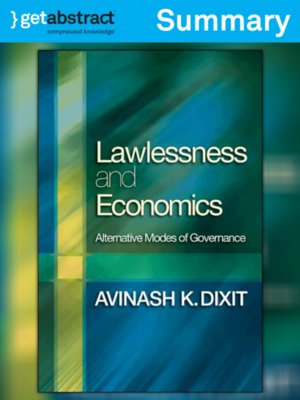
Sign up to save your library
With an OverDrive account, you can save your favorite libraries for at-a-glance information about availability. Find out more about OverDrive accounts.
Find this title in Libby, the library reading app by OverDrive.



Search for a digital library with this title
Title found at these libraries:
| Loading... |
getAbstract Summary: Get the key points from this book in less than 10 minutes.
In Shakespeare's Henry VI Part 2, a member of John Cade's gang famously suggests that the rebels should, as an initial step toward utopia, "Kill all the lawyers." Certainly, anyone who has forked over a hefty retainer can sympathize, but can societies function without legal systems? And if so, how? The answer, according to Princeton economist Avinash Dixit, is that they can indeed function and have for thousand of years, provided the right kinds of social institutions are in place. In fact, lawless systems can work better than traditional justice systems for some small, homogenous groups. Thus, extralegal institutions are still common, from trade associations that arbitrate members' disputes to private security guards. While this slim book is thick with equations, getAbstract thinks it gives a nice overview of the empirical literature. The game-theory models yield a few surprising conclusions and many areas for further research. While killing all the lawyers still is probably not prudent, Dixit begins to show when quasi-legal institutions lubricate and when they gum up the wheels of commerce.
Book Publisher:
Princeton UP






